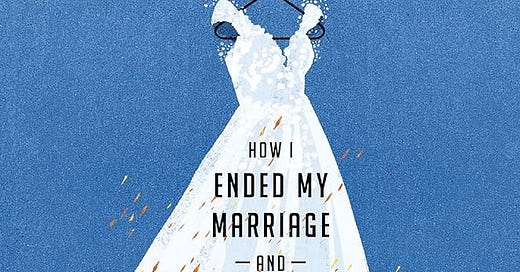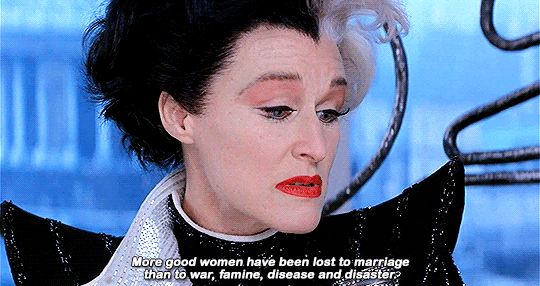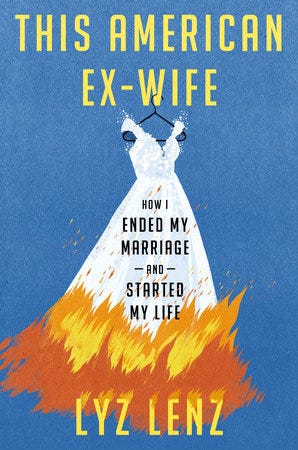Lyz Lenz is one of my favorite American ex-wives
A divorce talk. (And a bonus surprise-I'm-a-sports-mom-now-I-guess talk)
My pal and colleague
over at has a new book out shortly that may intrigue many of you: This American Ex-Wife: How I Ended My Marriage and Started My Life, a manifesto on the gender politics of marriage and divorce in America today. I had a lot of questions for Lyz regarding divorce in general, including whether there is some sort of post-COVID divorce boom because it sure feels like that.On that, Lyz told me that data is too inconclusive to support whether there is an actual trend but that, in general, more millennial women are opting out of marriage, and gray divorce (60+ and up) is on the rise. “These are people who thought that they were going to be happy in the end, and they’re not,” Lyz told me. “They’re realizing I have a limited amount of time left in my life, and I don’t want it to be miserable.”
I asked her a bunch of other questions I had about her divorce, friends’ divorces, and getting through divorce in general. Make sure you pre-order her book and, Chicago witches, grab a ticket to her March event!
Also, for the paid subscribers, I’m tacking on also had a totally separate conversation Lyz and I had at the top of our call lamenting how you may wake up one-day confronting life as a mom whose child is very into sports (one may say “sports mom”) and how you reckon with that surprising new turn of events. If you’re not a paid subscriber and you want to check that out, you’ll see a link below to unlock it.
But first: divorce!
As a friend, what do you say when you have friends who are exploring divorce, and you hope they get divorced, but you also understand that there’s more to it than just “Push the button and pay some money and get rid of that person?”
I have been there with friends, and I know friends have been there with me. “Why don’t you just do this?” It’s such a hard line to walk, because you love your friend, you want what’s best for them. You’ve seen them go through these cycles of misery, and you know that they’re not happy, and you know that they could be happy. But it’s also a deeply personal thing, and you don’t want to alienate your friend.
When I was going through it, having people just reflect back to me what they were hearing from me, just really neutrally [meant a lot.] I remember complaining about a situation in a Facebook group and having a woman reply, “Oh, well, then he must also be controlling in these other ways.” I was like, “How did you know?” She’s like, “That’s a classic abuse cycle.” I had never thought of it like that because I was in a good marriage, and I was not being abused. I wasn’t, but there are still abusive cycles people can get into. just having that reflected back on me felt like cold water to the face in a way that made me reevaluate the stories I was telling myself.
I also have a very good friend from college who had gone through a divorce, and she was listening to me talk a lot about my marriage. At some point she said, “Listen, I’m your friend no matter what, I’m here for it and you can annoy the shit out of me, that’s part of friendship.” She goes, “But I keep hearing you say the same things over and over again. Your life is not a game of chicken. You don’t have to wait for him to blink first.” She’s like, “You don’t have to wait for somebody to do something so awful that you have to leave them. You can make that decision. More importantly, I just want you to be happy, and I know that you’re not.”
That is a hard thing to say to a friend, but I am so glad that she was able to do it. I know from journeying with other friends, too, that yes, there are times when you can just reaffirm to them that their kids are going to be great, “Everything’s going to be fine, and you deserve to be happy.” I think those are ways that you can have those conversations in a nonjudgmental way but also encourage your friend to find their happiness.
How do you as a friend navigate it when you know a couple that’s getting divorced and you have to engage with the soon-to-be-ex as much as the friend who wants the divorce?
I live in a very small town, and I’ve had close friends go through some messy, messy divorces. I went into one situation believing that my alliance and my friendship lay with the woman, then after the end of five years, I got the man in the divorce. Which wasn’t my choice, I wanted to keep them both, but just the way that everything was handled. I was like, “Okay, this is how it goes.” You can’t control how people feel about you, about their relationships. Oftentimes it has nothing to do with you.
I think that there are just so many ways that you can support your friend without shit-talking the ex. I would get to these places where I know my friends really wanted to shit-talk my ex, and I was just so tired of talking about him that I was like, “I would literally rather talk about anything else than this person who’s sucked up so much of my emotional energy.”
If you show up for your friend, that’s where your emotional energy lies. Why would you put it into another person who’s giving you nothing but maybe a can of Miller High Life in the entire 10 years you’ve known this person? So I just think about showing up for your friend. You can do it in ways that are not shit-talkey, but you can also just listen and absorb. It’s going to be a little uncomfortable, but that’s life, that’s community, that’s friendship, that’s family.
I think just learning how to walk through the world with that dissonance and saying, “This doesn’t really have a lot to do with me.” If that husband is glaring at you, it’s like, “Okay, buddy, must be a bad day for you. What you did to your life sucks, and I am so sorry, but I love your kids, so let’s just figure this out.” I think that that’s fine and I don’t think you have to pretend. But also, if pretending gets you through a tough year, that’s also fine. We talk about pretending like it’s a bad thing, but sometimes it’s just the provisional self we throw on to get through some rough times.
What did your friends and family do during your divorce that helped you with your particular hard times?
I think it was just having friends who would just show up for me, who would come over on a Sunday afternoon and drink a glass of wine with me when I felt really lonely.
There were times when I had to specifically ask. I had to make my needs known because people can’t just guess. So I had to say, “Hey guys, I’m really lonely. Can anybody grab a drink with me after work on Wednesday and just chat?”
I also had to have some hard conversations with friends who, when I got divorced, stopped inviting me to couples things. It was not intentional. I felt really hurt by it, but I had to have that conversation with them, and I was like, “I miss you, and I feel like this change in my life meant that we don’t see each other anymore. How can I make that happen? I miss our friendship.” Then that opened up the dialogue in a non-defensive way.
Just having people check in and get coffee. I had friends who helped me move. I’m so bad at asking for help, but when I finally told people, I was like, “Hey, I am leaving my marriage, and I am moving.” I had a friend of mine just show up with her truck and just be like, “Great, we’re doing this.” She’s a weightlifter, she’s very strong, and she helped me move out the last bit of stuff. Then she made sure I had lunch that day because it was the last thing on my mind. I think it’s kind of like having a baby: you just need somebody to come over and hold the baby. This time the baby is you.
Friends want to help, but we don’t always know how, and you just have to ask. It made my friendship so much better and deeper because I got vulnerable with them. I told them what I needed, and I gave them the chance to show up for me, and people did. It was great. My daughter was in dance then, and I told a mom whose kids had been in dance with mine for a while we were getting divorced. She’s like, “Oh my God, I have all this extra furniture. Do you want it?” She had her dad drop it off. It was great.
Did you and your ex ever have a talk about or have any rules or unwritten about what you would say about your marriage or divorce?
With our therapist, we worked it out together and talked through the language and everything. He was really resistant because he was like, “You’re the one leaving. I don’t want to take any responsibility for this.” The therapist was walking him through it and everything. Then we had the script, and we were supposed to use it when we sat down and talked to the kids, and then I was the one using it, and he was not sticking to the script. It was awful, and it made it really hard for the kids.
He also asked me not to talk to his family about the divorce. I miss his family. I wish I would’ve gotten to talk to them about it, but that was his choice to make, and I respected that boundary. We did have ways we agreed that we would behave. It wasn’t super hard because he’s not very social or outgoing. I was like, “Well, I get to keep most of these friends, but you can have the church.” Those were some things that we talked through a little bit, and those worked out a little bit better.
You just have to let go of the narrative a little bit because whatever happens in the immediate aftermath, just know the dust will eventually settle. I think that there is a desire, and it’s good when you have children and family involved, to set a tone and be a united front. That makes it easier for everybody. But if you can’t, and that’s not always realistic in every situation, I think it’s okay to let go of that anxiety of, “What is he saying? What is he doing?” You can’t control it.
Take a breath, let it go, and know and trust that the people who love you will come to you and respect you in the way that they need to. It’s been, gosh, almost seven years and my kids are fine. They get it. They don’t even remember that time, so that’s a huge gift for me.
What was some of the best advice you got through the process?
The best advice I got was to be as dispassionate as possible. My lawyer told me in the beginning, she’s like, “Picture yourself on the other side of this. What does it look like? Who are you? Give yourself that image.” She’s like, “Write it down if you need to. The goal is to get you to this other side.”
There were some moments where I was like, “I want to scrap over all these details because this is bullshit,” and it was bullshit. But focusing on that end goal really helped me let some things go that could have made the process go a lot longer. Sometimes it’s good to fight for yourself, but also the legal system is expensive and demoralizing, and so I think that was one of the biggest and best pieces of advice that I got was to find that image of who you are, happy on the other side. That’s the goal, and let everything else just settle.
There’s such a difference between supporting a friend getting divorced and you’re like, “Good, to hell with them. They’ve ground you down to nothing. You’ll be so much happier without them” vs.“I’m really sad that this guy has this issue that he cannot fix and I’m heartbroken for your family and I really love you both and I wish he could make it work.”
I think you can still love a person and divorce them, you can still care for a person and divorce them. I don’t think they always have to be a narcissist. I hate it when people are like, “My ex is a narcissist.” I understand that making somebody into a villain can be helpful, but it’s also like you don’t have to make somebody into a villain to advocate for your own happiness. You can just say, “I love you and I deeply care for you, but you are not making me happy, and you are also not happy.” Because if you’re in a relationship and one person isn’t happy, that is not a happy relationship.
I think it’s okay to say, “We care for this person too, but we’re also very glad that you’re advocating for your happiness.” That’s so important, and you don’t have to make the person a villain or always just be like, “Down with him.” You can do that if that’s the situation, but I think there are plenty of situations where it’s just like, actually, marriage as a system is inherently exploitative. If you don’t have a partner who’s willing to work with you and you still get ground down, it doesn’t matter if they’re the best person in the world. If it’s not working, it’s not working.
I also think it’s a sign of a successful relationship to know when to call it. It’s like TV show seasons, the ones that drag and drag and drag and never know when to end, those are not the good TV show seasons. The good TV shows are the ones that know when to quit.
There are people I want to buy your book for, but some of them, their husbands, would not be able to take it — to see that cover would cause a fight. I’m curious what thoughts or discussions you’ve had about that.
In response to my newsletter, I’ve heard from a lot of defensive men. “Well, I do all the work at home and my wife doesn’t do anything.” It’s like, “One: that’s how you’re talking about the person you’re married to? Two: sounds like you’re really defensive. Three, this also sounds like a conversation you should be having with your partner.” I love when men are like, “Well, my marriage is blah, blah, blah,” and I love to point out, I’m like, yes, “Even the worst marriage is still beneficial for a man.”
Of course you’re into the institution, it benefits you and will always benefit you, even if your partner is miserable. But you need to ask yourself how much of your life is built on the misery of your partner. I think that that is a really hard question for cis/het men to ask themselves. Then they’re like, “Oh no, I’m the victim, and it’s so hard.” It’s like, “No, statistically you’re still doing fine, so take a breath, get a therapist, figure it out like the rest of us have.”
There was a little bit of discussion with marketing about the title of the book and how balls to the wall do we go? At every stage, I was like, “All the way. Go all the way. I want things on fire.” I want to push those buttons. I want people to feel uncomfortable. I want them to want to know why they feel uncomfortable about this. I am so tired of bending and moderating my tone to make people feel comfortable. I don’t have to do that anymore, and I don’t think we should have to do that anymore.
It is 2020 fucking four, and we’ve already had a second wave of feminism that’s argued these same things. Nothing I’m saying is that new; just that nobody listened the first time. Let’s go, and I won’t apologize, and I won’t moderate, and I will light things on fire.
Now, here is a side chat Lyz and I had at the top of our call about getting pulled into kids’ sports culture even when you know it’s problematic and how you want to resist but don’t know how without messing with your kid’s thing. This is a chat I’ve been having with other friends lately, so maybe it’s been happening to you as well.
Keep reading with a 7-day free trial
Subscribe to Evil Witches Newsletter to keep reading this post and get 7 days of free access to the full post archives.





